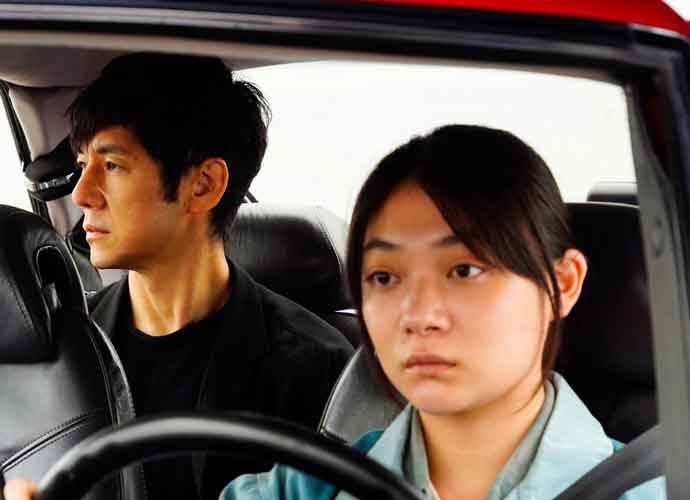‘Drive My Car’ Movie Review: A Challenging But Engrossing Road Drama

4.5/5
The Japanese film Drive My Car is both an absolute breath of fresh air for hungry cinemagoers and a raw, ponderous drama that doesn’t provide simple conflicts and clear heroes to root for. It will certainly challenge an afflicted attention span, but viewers that stick with this film will come out deeply affected by the themes it explores.
The performances of the cast, especially the central relationship of Hidetoshi Nishijima who plays an aging theater actor Yūsuke Kafuku, and Töko Miura, who plays his soft-spoken young driver Misaki Watari, are also a huge strength in the movie.
The film, which is based on a short story by Haruki Murakami, follows Yūsuke, who is directing a multilingual production of Anton Chekhov’s Uncle Vanya in Hiroshima while in the throes of a personal tragedy. He is assigned Misaki as a driver, and they organically develop a friendship as she drives him around in his treasured red Saab, which becomes a beloved image by the end of the film.
The director and co-writer Ryusuke Hamaguchi makes plenty of intentional choices in the movie that would make a traditionalist Intro to Film Studies professor pull their hair out, The opening credits play about 40 minutes in, there are minutes-long shots of just the Saab driving between locations, and even long dialogue scenes between characters with minimal action.
These elements don’t take you out of the story like you may think, but instead, absorb you very effectively into the day-to-day of the character’s parallel processes of mourning a difficult personal loss and fronting an ambitious artistic endeavor. Communication becomes a very interesting component of the film, with table read scenes occurring where the cast performs Uncle Vanya in Japanese, Korean, Cantonese and Korean sign language, and exchange scene notes in English.
In rejecting traditional genre and storytelling tropes, Drive My Car really paves its own way with single elements you may have seen and expect certain things from. We’ve seen films about demanding, grieving artists before, but this film still leads you to Yūsuke’s emotional catharsis in a beautiful, understated way that cuts out the need for ornamental side plots.
Drive My Car may not be what you expect from a traditional drama, but offers a beautifully contemplative perspective on grief and loss with gorgeous cinematography, poetic writing that doesn’t lose effectiveness even while reading subtitles, and an unbelievably strong ensemble that truly feel like real people that populate the film’s world.
You can see screening locations for Drive My Car, which is still playing in theaters across the country, here.
RELATED ARTICLES
Get the most-revealing celebrity conversations with the uInterview podcast!





Leave a comment